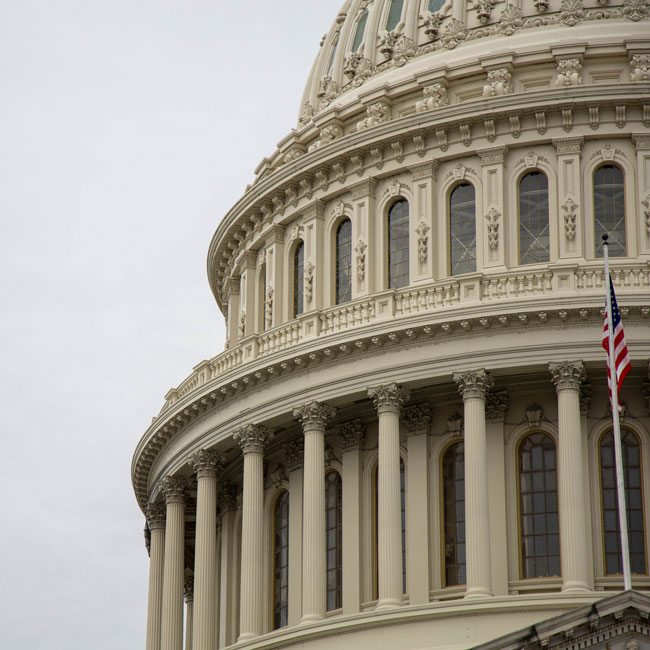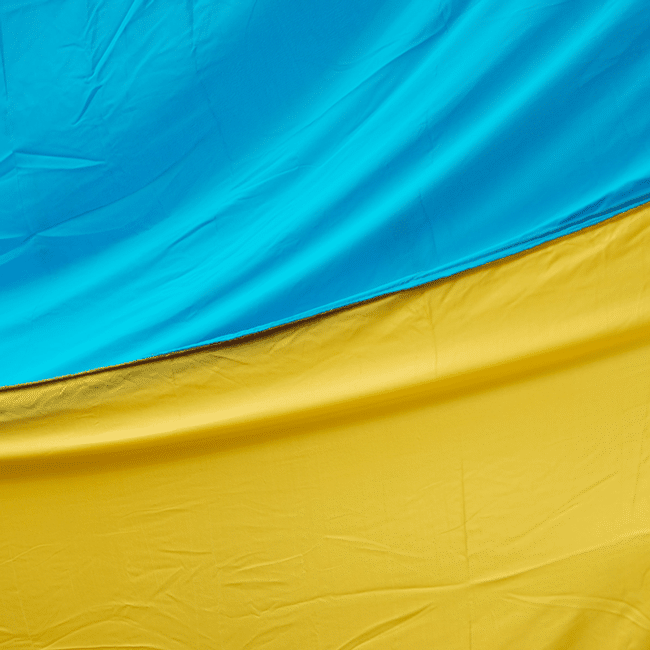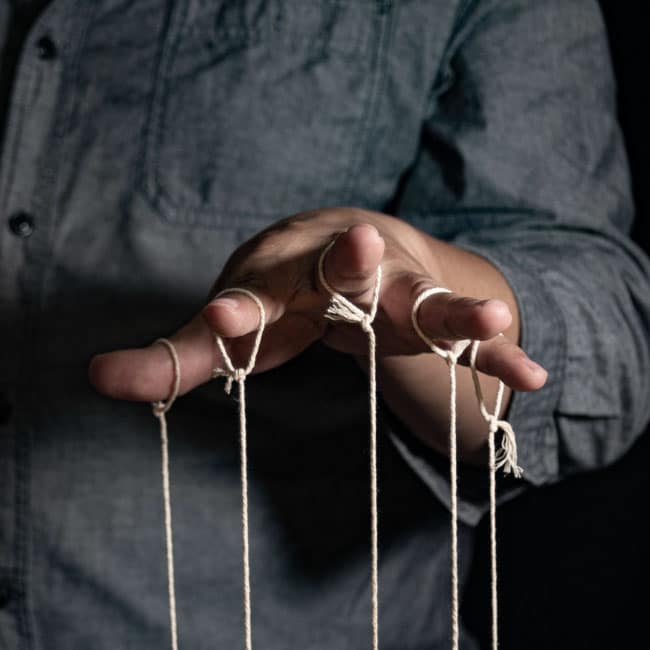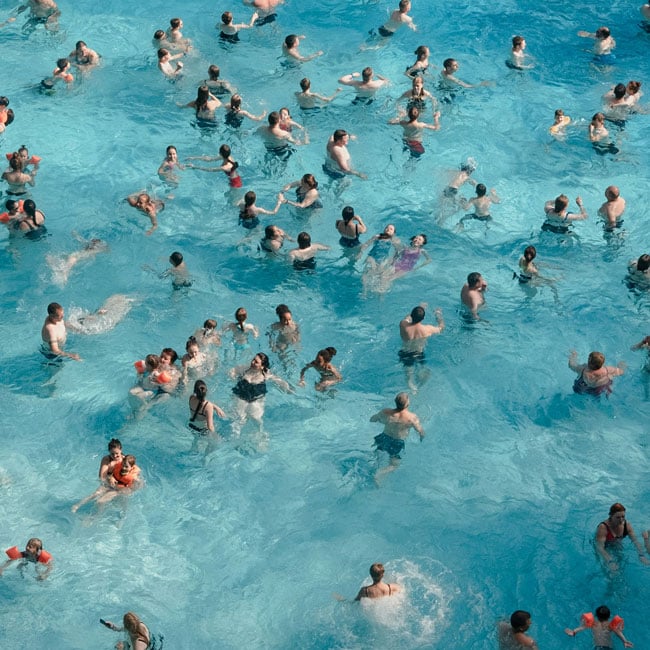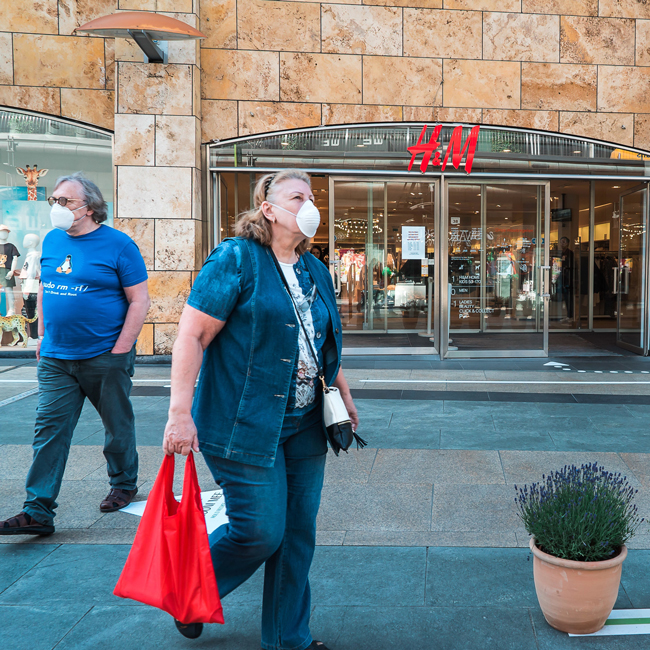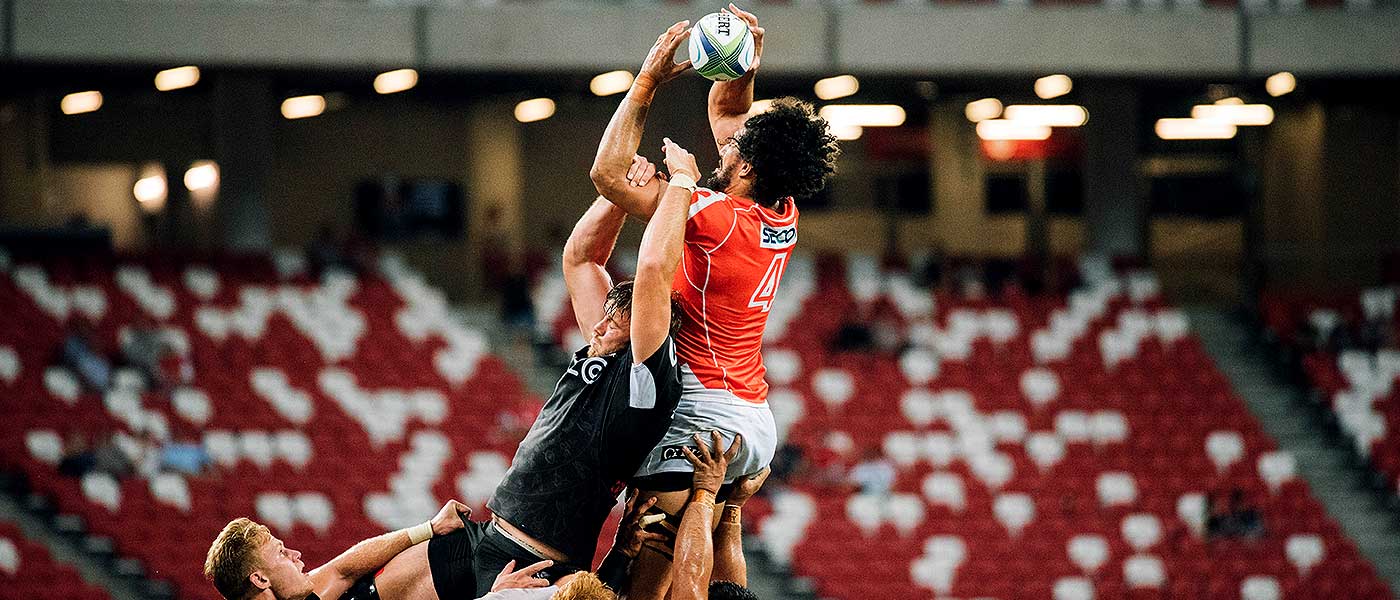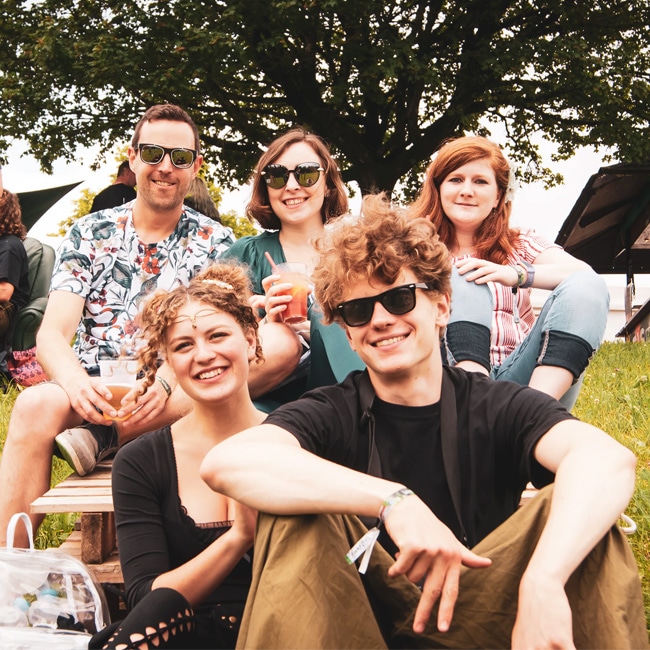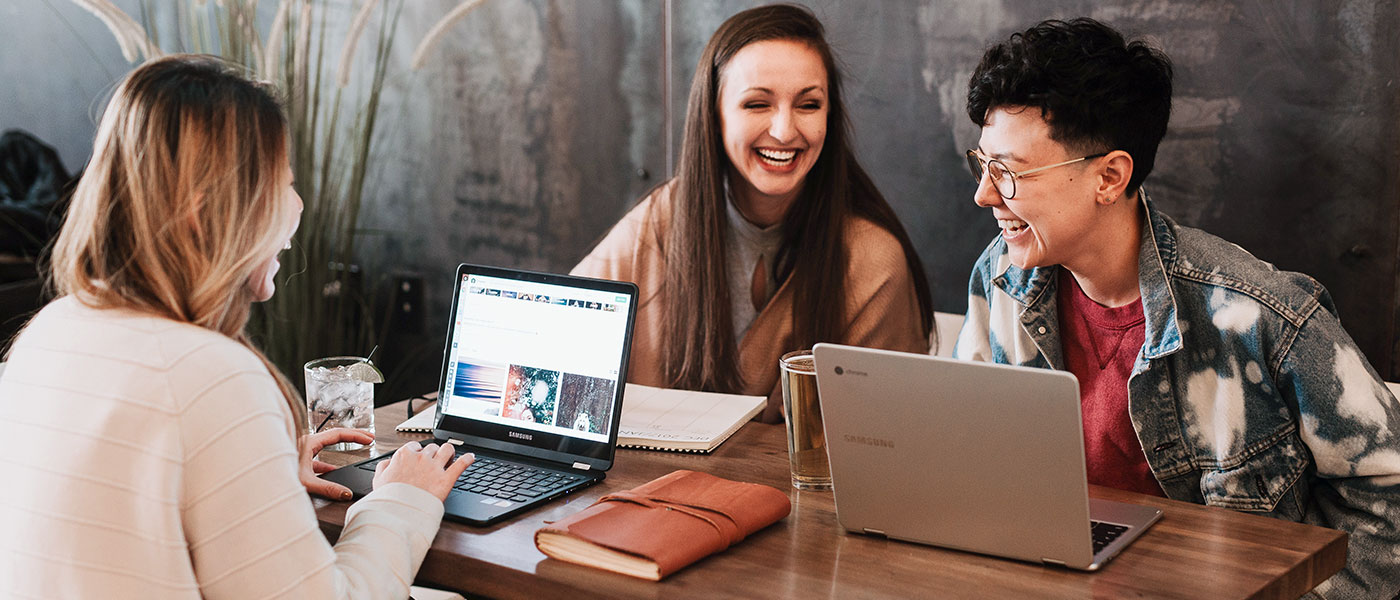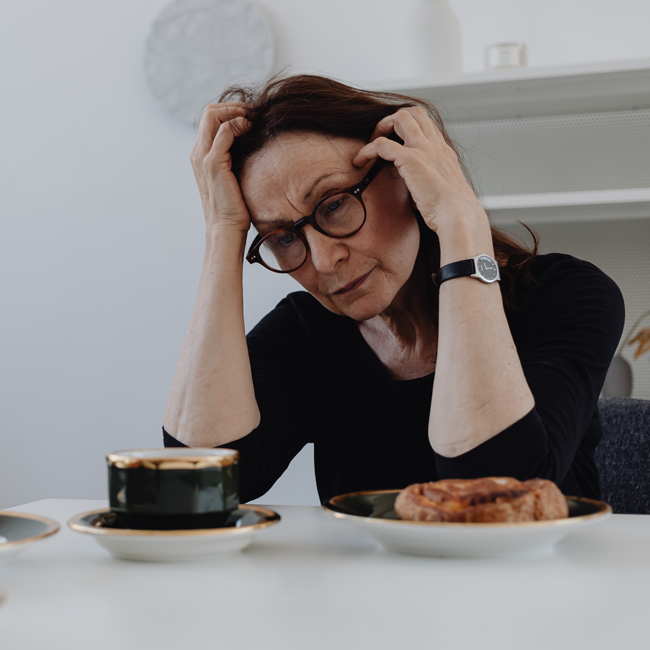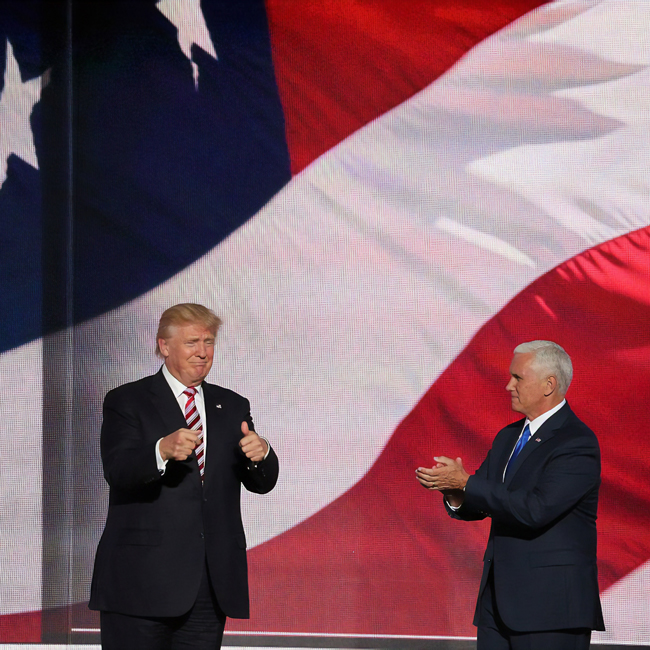No justice, no peace in healing Trump's America
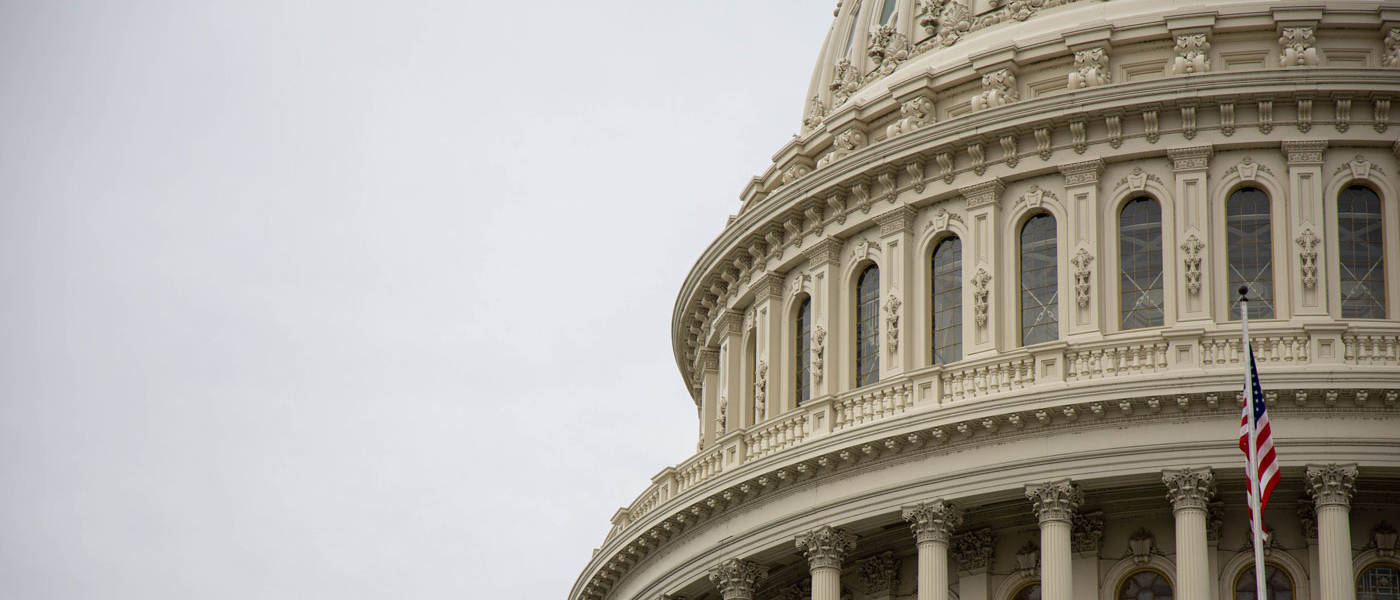
No justice, no peace in healing Trump’s America
Opinion + AnalysisBusiness + LeadershipPolitics + Human Rights
BY Simon Longstaff 21 JAN 2021
What fate should be reserved for Donald Trump following his impeachment by the US House of Representatives for his role in inciting insurrection?
Trump’s rusted-on supporters believe him to be without blame and will continue to lionise him as a paragon of virtue. Trump’s equally rusted-on opponents see only fault and wish him to be ground under the heel of history.
However, there is a large body of people who approach the question with an open mind – only to remain genuinely confused about what should come next.
On the one hand, there is an abiding fear that punishing Trump will fan the flames that animate his angry supporters elevating Trump’s status to that of ‘martyr-to-his-cause’. Rather than bind wounds and allow the process of healing to begin, the divisions that rend American society will only be deepened.
On the other hand, people believe that Trump deserves to be punished for violating his Oath of Office. They too want the wounds to be bound – but doubt that there can be healing without justice. Only then will people of goodwill be able to come together and, perhaps, find common ground.
There is merit in both positions. So, how might we decide where the balance of judgement should lie?
To begin, I think it unrealistic to hope for the emergence of a new set of harmonious relationships between the now three warring political tribes, the Republicans, Democrats and Trumpians. The disagreements between these three groups are visceral and persistent.
Rather than hope for harmony, the US polity should insist on peace.
Indeed, it is the value of ‘peace’ that has been most significantly undermined in the weeks since the Presidential election result was called into question by Donald Trump and his supporters. Rather than anticipate a ‘peaceful transition of power’ – which is the hallmark of democracy – the United States has been confronted by the reality of violent insurrection.
As it happens, I think that President Trump’s recent conduct needs to be evaluated against an index of peace – not just in general terms but specifically in light of what occurred on January 6th when a mob of his supporters, acting in the President’s name, broke into and occupied the US Capitol buildings – spilling blood and bringing death inside its hallowed chambers.
There is a particular type of peace that can be traced back to the Anglo-Saxon legal codes that provide the foundation for many of the laws we take for granted today. The King’s Peace originally applied to the monarch’s household – not just the physical location but also the ruler, their family, friends and retainers. It was a serious crime to disturb the ‘King’s Peace’. Over time, the scope of the King’s Peace was extended to cover certain times of the year and a wider set of locations (e.g. all highways were considered to be subject to fall under the King’s jurisdiction). Following the Norman Conquest, there was a steady expansion of the monarch’s remit until it covered all times and places – standing as a general guarantee of the good order and safety of the realm.
The relevance of all of this to Donald Trump lies in the ethical (and not just legal) effect of the King’s Peace. Prior to its extension, whatever ‘justice’ existed was based on the power of local magnates. In many (if not most places) disputes were settled on the principle of ‘might was right’.
The coming of the King’s Peace meant that only the ruler (and their agents) had the right to settle disputes, impose penalties, etc. The older baronial courts were closed down – leaving the monarch as the fountainhead of all secular justice. In a nutshell, individuals and groups could no longer take the law into their own hands – no matter how powerful they might be.
These ideas should immediately be familiar to us – especially if we live in nations (like the US and Australia) that received and have built upon the English Common Law. It is this idea that underpins what it means to speak of the Rule of Law – and everything, from the framing of the United States Constitution to the decisions of the US Supreme Court depend on our common acceptance that we may not secure our ends, no matter how just we think our cause, through the private application of force.
As should by now be obvious, those who want to forgive Donald Trump for the sake of peace are confronted by what I think is an insurmountable paradox. Trump’s actions fomented insurrection of the kind that fundamentally broke the peace – indeed makes it impossible to sustain. The insurrectionists took the law into their own hands and declared that ‘might is right’ … and they did so with the encouragement of Donald Trump and those who stood by him and whipped up the crowd in the days leading up to and on that fateful day when the Capitol was stormed.
There literally can be no peace – and therefore no healing – unless the instigators of this insurrection are held to account.
Finally, this is not to say that Donald Trump must suffer his punishment. There is no need for retribution or a restoration, through suffering, of a notional balance between ‘right’ and ‘wrong’. It may be enough to declare Donald Trump guilty of the ‘high crime and misdemeanour’ for which he was impeached. And if he remains without either shame or remorse, then it may also be necessary to protect the Republic from him ever again holding elected office – not to harm him but, instead, to protect the body politic.
Given all of this, I think that healing is possible … but only if built on a foundation of peace based on justice without retribution.
Ethics in your inbox.
Get the latest inspiration, intelligence, events & more.
By signing up you agree to our privacy policy
You might be interested in…
WATCH
Politics + Human Rights
James C. Hathaway on the refugee convention
Opinion + Analysis
Politics + Human Rights, Relationships
Is it wrong to care about Ukraine more than other wars?
Opinion + Analysis
Business + Leadership, Climate + Environment, Society + Culture
Overcoming corruption in Papua New Guinea
Opinion + Analysis
Business + Leadership
Measuring culture and radical transparency
BY Simon Longstaff
Simon Longstaff began his working life on Groote Eylandt in the Northern Territory of Australia. He is proud of his kinship ties to the Anindilyakwa people. After a period studying law in Sydney and teaching in Tasmania, he pursued postgraduate studies as a Member of Magdalene College, Cambridge. In 1991, Simon commenced his work as the first Executive Director of The Ethics Centre. In 2013, he was made an officer of the Order of Australia (AO) for “distinguished service to the community through the promotion of ethical standards in governance and business, to improving corporate responsibility, and to philosophy.” Simon is an Adjunct Professor of the Australian Graduate School of Management at UNSW, a Fellow of CPA Australia, the Royal Society of NSW and the Australian Risk Policy Institute.
Ethics Explainer: Liberalism

Ethics Explainer: Liberalism
ExplainerBusiness + LeadershipPolitics + Human Rights
BY Dr Tim Dean 18 JAN 2021
Liberalism is founded on the belief that individual freedom should be the basis of a just society.
Who should decide how you live your life: where you reside; what career you choose; whom you can marry; and which gods you worship? Should it be your parents? Or your religious or community leaders? Should it be determined by the circumstances of your birth? Or perhaps by your government? Or should you ultimately be the one to decide these things for yourself?
If you answered the latter, then you’re endorsing the values of liberalism, at least in the broadest sense. Liberalism is, at its heart, the belief that each individual person has moral priority over their community or society when it comes to determining the course of their life.
This primacy of individual freedom and self-determination might seem self-evident to people living in modern liberal democracies, but it is actually a relatively recent innovation.
The Birth of Liberalism
In most societies throughout history and prehistory, one’s beliefs, values and social role were imposed on them by their community. Indeed, in many societies since agricultural times, people were considered to be the property of their parents or their rulers, with next to no-one having genuine freedom or the power of self-determination.
Brave (or foolhardy) was the medieval serf who took it upon themselves to defy their local church to practice their own religion, or defy their family tradition to seek out their dream job, or defy their clan to marry whomever their heart desired.
The seeds of modern liberalism were planted in England in the 13th century with the signing of the Magna Carta, which weakened the unilateral power of the King over his minions. This started a process that eventually enshrined a number of individual rights in English law, such as a right to trial by jury and equality before the law.
Soon even rulers – whether monarch or government – came to receive their legitimacy not from divine authority, tradition or fiat but from the will of the people. If the rulers didn’t operate in the interests of the people, the people had the right to strip that legitimacy from them. This made democracy a natural fit for nations with liberal sensibilities.
The other motivating force for liberalism was the horrifically destructive religious wars that wracked Europe after the Reformation, culminating in the Peace of Westphalia in 1648. Given the millions of lives lost due to religious and ideological differences, many people came to see that tolerance of different beliefs and religious practices might be a better alternative to imposing one’s beliefs on others by force.
Modern Liberalism
Liberalism was fleshed out as a comprehensive political philosophy by thinkers such as Thomas Hobbes, Jean-Jacques Rousseau, John Locke and John Stuart Mill, and more recently by John Rawls. While they differed in their emphases and recommendations, all liberal thinkers were committed to the core idea that individuals were – and ought to be – fundamentally free to live as they choose.
Philosopher John Locke argued that liberalism stemmed from our very nature, arguing that all people are essentially in “a state of perfect freedom to order their actions, and dispose of their possessions and persons as they think fit, within the bounds of the law of Nature, without asking leave or depending upon the will of any other man.”
Most liberal thinkers argued that individual freedom should only be limited in very special circumstances.
One of those limitations was not impinging upon the freedom of others to live according to their own beliefs and values, hence the importance of tolerance and preventing harm against others. As they say, your freedom to swing your arm ends where another person’s nose begins.
One common theme of liberalism is the importance of free speech. John Stuart Mill, for example, argued that each individual ought to be able to seek the truth for themselves rather than being obliged to accept the views imposed on them by authorities or tradition.
And in order to seek truth, they need to be able to explore, express and interrogate all beliefs and arguments. And the only way to do that was to allow wide-ranging free speech. “There ought to exist the fullest liberty of professing and discussing, as a matter of ethical conviction, any doctrine, however immoral it may be considered,” he wrote.
This freedom of speech should be limited only in very particular circumstances, such as when that speech is likely to cause direct harm to others. So shouting “fire” in a packed theatre when no such fire exists is an abuse of free speech.
This “harm principle” is still a topic of considerable debate amongst liberals and their opponents, especially around what ought to be considered sufficient harm to justify suppressing speech.
Other liberal thinkers emphasised the fact that not every person was equally able to exercise their freedom through no fault of their own. Poverty, sexism, racial discrimination and other systemic barriers mean that freedom and power are unequally distributed.
This led to what is often called “social justice” liberalism, which seeks to remove those social barriers and enable all people to exercise their freedom to the fullest extent. Some focused on economic redistribution, such as the liberal socialists, while others focused on social barriers, like feminists and anti-discrimination campaigners.
Ethics in your inbox.
Get the latest inspiration, intelligence, events & more.
By signing up you agree to our privacy policy
You might be interested in…
Opinion + Analysis
Business + Leadership, Health + Wellbeing
Why ethical leadership needs to be practiced before a crisis
Opinion + Analysis
Politics + Human Rights
If you don’t like politicians appealing to voters’ more base emotions, there is something you can do about it
Big thinker
Politics + Human Rights, Relationships
Big Thinker: Eleanor Roosevelt
Explainer
Society + Culture, Politics + Human Rights
Thought experiment: The original position
BY Dr Tim Dean
Dr Tim Dean is Philosopher in Residence at The Ethics Centre and author of How We Became Human: And Why We Need to Change.
Elf on the Shelf is a fun and festive way to teach your child to submit to the surveillance state

Elf on the Shelf is a fun and festive way to teach your child to submit to the surveillance state
Opinion + AnalysisRelationships
BY Matthew Beard 15 DEC 2020
Imagine if every school in Australia introduced comprehensive surveillance technology coupled with facial recognition, and was able to assign a score to each student based on how good a “school citizen” they were.
Students could access an app that provided them with feedback on things they’d done, or failed to do, throughout the day. The day-to-day data could then be collected and a general character assessment made of the child on, let’s say, a year-by-year basis. At the end of the year, maybe at presentation night, students would be told if they’d been “good” school citizens or not.
I’m going to go out on a limb and suggest most people would find this idea pretty repugnant. Many would see echoes of China’s oppressive social credit system. Words like “Orwellian” would be thrown around with reckless abandon.
Just don’t tell that to the families around the world for whom Christmas involves a character check from Santa Claus. Certainly don’t tell the 11 million-odd who have “adopted’” an Elf on the Shelf and will have dusted it off for the season.
If you haven’t heard of it, the Elf on the Shelf explains how Santa is able to see you when you’re sleeping and know when you’re awake. Manufactured by Creatively Classic Activities and Books, the Elf on the Shelf is a tool used by families to add some more wonder and fun to the Christmas season.
Parents move the elf around, and kids look to see where it will appear next. They’re often also told that because they don’t know where the elf is or what the elf is watching, they’d better make sure they’re behaving themselves. After all, the elf’s job is to report back to Santa.
That’s right. Santa has an army of tiny, surprisingly mobile little snitches embedded in every home, watching, collecting data, feeding it back to the big guy. For some families, the elf also leaves handy notes for the kids, to make sure they stay on St Nick’s good side. “I don’t like it when you don’t share your toys. I don’t want to have to tell Santa about this behaviour,” reads one note a parent shared online.
Social credit be damned. Santa had it figured out this whole time!
We tend to be more sceptical of surveillance when it comes to our kids. For instance, recent trials of facial recognition in Victorian schools have been met with human rights concerns and academic criticism. When Mattel developed Aristotle, a digital assistant to be given to newborn children who would grow and develop alongside them, it was pulled from the market for privacy concerns. Even tools like GPS tracking apps are the subject of general debate and controversy.
There are good reasons for these concerns. Law professor Julie E Cohen argues that “privacy fosters self-determination” and that it is “shorthand for breathing room to engage in the processes of boundary management that enable and constitute self-development”.
So, not only does the collection of children’s data put them at risk if that data falls into the wrong hands, there’s a stifling effect on children’s development when they feel like they’re continually being watched.
But the Elf on the Shelf isn’t quite analogous to China’s mass surveillance. For one thing, Santa only has about 11 million elves out there, which is amateur hour compared to China’s “Skynet” of over 200m cameras. For another, the Elf on the Shelf doesn’t use fear and promises of safety to gain people’s comfort with surveillance and data gathering; it uses fun.
Less like a social credit system, more Facebook. Esteemed company indeed.
Of course, Elf on the Shelf isn’t actually surveillance because – spoiler alert – it’s based on a myth. I’ve no doubt plenty of parents will dismiss what I’m saying here as unnecessary scaremongering over something that’s actually fine, fun and basically a bit of stupid play at Christmas time.
While this wouldn’t be the first time a philosopher has been accused of sucking the fun out of a situation, I’m not sure that argument cuts it.
First, the rise of “sharenting” and the pushback from children against parents who post too much information about them online indicates parents are not always the best custodians of their kids’ privacy. In general, a generation prone to oversharing on social media may not be the best judges of what lessons Elf on the Shelf is teaching.
Second, and more importantly, the effects of surveillance work even if the surveillance isn’t really happening. This was the genius of the infamous Panopticon – a prison designed by British philosopher Jeremy Bentham, where a guard tower could potentially observe any prisoner at any given time, but no prisoner could see the guard tower. It was always possible that you were being observed, which meant you behaved as though you were being observed at all times.
This logic is, of course, very creepy. It’s also very common – as another philosopher, Michel Foucault, later pointed out. You can build workplaces, schools, mental health institutions and yes, nationwide mass surveillance networks on similar principles. The concept is that the possibility of observation and judgement means there’s no need to force people to conform – they do it themselves. Arguably, China’s social credit system is the high-water mark of the logic of the Panopticon.
But the rhetoric – intentional or not – behind Elf on the Shelf has echoes of the Panopticon. It reads from the same playbook. The elf appears at random times and in random locations. It’s always possibly watching.
Whether that’s the goal parents are trying to achieve or not, we ought to be concerned about the effects of introducing and normalising this kind of behaviour monitoring and observation to kids.
As Olly Thorn, the philosopher behind Philosophy Tube tweeted: “He sees you when you’re sleeping He knows, when you’re awake, It’s a subtle, calculated technology of subjection.”
This isn’t necessarily a reason to ditch the tradition, but we can do away with the creepiness – especially as the myth becomes more and more like reality. It’s entirely possible to have an Elf on the Shelf and not play this game. Maybe the elf is just waiting for Santa to come and deliver the presents – and helps him unload the gifts. Perhaps you don’t use the elf as a tool for discipline but as a game and a story that’s played together.
Maybe you don’t need to tell the Santa story at all, but that’s another matter.
This article was first published in The Guardian Australia on 16 December, 2019.
Ethics in your inbox.
Get the latest inspiration, intelligence, events & more.
By signing up you agree to our privacy policy
You might be interested in…
Opinion + Analysis
Climate + Environment, Relationships
“Animal rights should trump human interests” – what’s the debate?
Opinion + Analysis
Relationships, Society + Culture
Beyond cynicism: The deeper ethical message of Ted Lasso
Opinion + Analysis
Relationships, Society + Culture
Five dangerous ideas to ponder over the break
Opinion + Analysis
Society + Culture, Relationships
Discomfort isn’t dangerous, but avoiding it could be
Join our newsletter
BY Matthew Beard
Matt is a moral philosopher with a background in applied and military ethics. In 2016, Matt won the Australasian Association of Philosophy prize for media engagement. Formerly a fellow at The Ethics Centre, Matt is currently host on ABC’s Short & Curly podcast and the Vincent Fairfax Fellowship Program Director.
Market logic can’t survive a pandemic

Market logic can’t survive a pandemic
Opinion + AnalysisBusiness + Leadership
BY Dr Richard Denniss 8 DEC 2020
For decades, neoliberalism has fuelled enormous scepticism about the role of government.
Whereas the ‘invisible hand’ of market forces is used as a synonym for efficiency and progress, the ‘dead hand’ of bureaucracy congers up waste and delay. But after decades of bad press, the Covid-19 pandemic seems to be restoring Australia’s faith in government.
Almost nobody, in Australia at least, trusts the market to solve a pandemic. Over the past 10 months, Australians have assumed that their elected representatives, and the bureaucracies they oversee, will solve all manner of problems on our behalf. And, by and large, the Australian public’s faith in government has been well placed.
It was the federal government, not the travel industry, that suddenly closed our international borders on March 2020 to slow the spread of the virus into Australia. It was the state premiers who closed our state borders to slow the spread within Australia. And, via the formation of the National Cabinet, our state and national leaders have delivered clearer messages, simpler rules, and more effective policies than almost any other government in the world.
Needless to say, mistakes were made. Passengers should not have disembarked from the Ruby Princess, Melbourne’s hotel quarantine system should have been better, aged care homes should have been provided with better information and more support, and the tracing app developed by the federal health department has been a waste of time and money.
But, despite the mistakes, Australia is largely virus-free with an economy that is starting to grow again. And trust in Australian political leaders has risen to record levels. State premiers, in particular, have surged in popularity as they stepped in to protect their residents.
Nobody thinks that ‘market forces’ could have done a better job of protecting Australians from Covid-19. Indeed, the sharpest criticism from the Coalition of Daniel Andrews is that he relied too heavily on private security guards and didn’t rely heavily enough on the Commonwealth’s offer to provide troops to guard the hotels. Think about that. Daniel Andrews is being criticised for not relying on the public sector enough!
When a vaccine finally arrives, how will we decide who gets it first? Will we ‘leave it to the market’ and let drug companies set whatever price they want or will we develop clear (bureaucratic) rules for which vulnerable groups and key workers will get it first at zero price?
Governments aren’t perfect, and neither are markets. We have always relied heavily on governments to provide health, education and transport infrastructure and we have always relied heavily on markets to provide food, clothing and entertainment. Different countries, at different points in time, make different choices about how and when to rely on the government, with voters ultimately having the final say.
While it is clear that the Covid-19 pandemic will have a lasting impact on Australia’s economy, society and democracy, what is not clear is what shape that impact will be. Will we wind back the deregulation of our privatised aged care system that led to the untimely death of so many vulnerable Australians? Will we invest more heavily in public health? Will we expand and modernise our public transport system to make it less crowded? Or will we just go back to cutting taxes and cutting spending on services?
The economic language of neoliberalism has had a profound impact on our public debates, our public institutions, and perhaps most importantly, our collective expectations of what governments can and can’t do.
But as any Australian who has watched the enormous death toll and economic destruction taking place in the US and much of Europe can see, the Covid-19 pandemic has made it clear that government intervention, political leadership and a strong sense of community are essential for addressing some problems.
It’s not inevitable that Australians will translate their new-found faith in governments into support for more government action on issues like climate change, inequality or the liveability of our cities. But it’s not impossible.
After decades of hearing that governments are the problem, Australians have just seen for themselves how effective governments can sometimes be.
Despite the Covid-19 crisis, Australia is one of the richest countries in the world, and while we can afford to do anything we want, we can’t afford to do everything we want.
Neoliberal rhetoric about the inherent inefficiency of government action has for decades stifled debate about which problems we would like the government to fix and which problems we are happy to leave to the market. But the new reality is that everyone agrees that governments have an important role to play in solving big problems.
Should we have a ‘gas fired recovery’ or a ‘green new deal’. Should we invest heavily in public housing or provide tax breaks for individual property investors? While it shouldn’t have taken a pandemic to provide it, at least we finally have room in our public debate to ask such questions.
This project is supported by the Copyright Agency’s Cultural Fund.
Ethics in your inbox.
Get the latest inspiration, intelligence, events & more.
By signing up you agree to our privacy policy
You might be interested in…
Opinion + Analysis
Business + Leadership
The pivot: ‘I think I’ve been offered a bribe’
Opinion + Analysis
Business + Leadership, Politics + Human Rights
No justice, no peace in healing Trump’s America
Opinion + Analysis
Business + Leadership
United Airlines shows it’s time to reframe the conversation about ethics
Reports
Business + Leadership
Thought Leadership: Ethics at Work, a 2018 Survey of Employees
BY Dr Richard Denniss
Dr Ricahrd Denniss is Chief economist and former Executive Director of the Australia Institute. Richard is a prominent Australian economist, author and public policy commentator, and has spent the last twenty years moving between policy-focused roles in academia, federal politics and think-tanks. He was also a Lecturer in Economics at the university of Newcastle and former Associate Professor in the Crawford School of Public Policy at ANU. He is a regular contributor to The Monthly and the author of several books including: Econobabble, Curing Affluenza and Dead Right: How Neoliberalism Ate Itself and What Comes Next?
Treating citizens as customers is a recipe for distrust
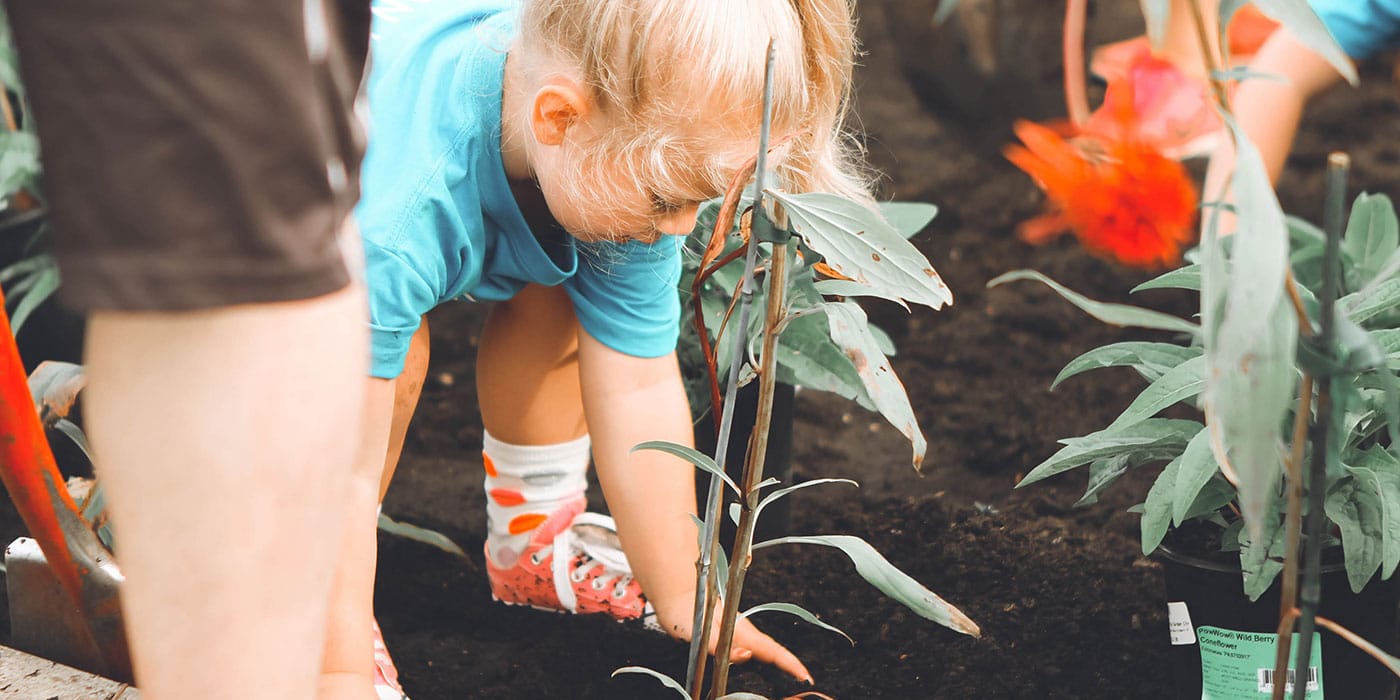
Treating citizens as customers is a recipe for distrust
Opinion + AnalysisBusiness + LeadershipRelationships
BY Eva Cox 8 DEC 2020
My 1995 ABC Boyer Lectures, ‘A Truly Civil Society’, outlined the ill effects of the then decade-plus political paradigm shift to neoliberalism.
In the years following WW2, governments implemented policy changes to ensure well-functioning societies that delivered social fairness. This was to avoid a repetition of the pre-war rise of dictatorships, such as happened in Germany and Italy where democracies were overthrown by the fascists. Much of this reconstruction included expanding health, education and welfare for communities to balance the existing inequities of market wealth creation.
From the 1980s, the failing USSR and the globalising of finance via petrodollars allowed big business to shift the paradigm to market forces and reduce the scope of governments. The effects were becoming evident while I was writing the Boyer’s in 1995, as neoliberalism was exacerbating the cuts to social goals and public funding. Growing distrust of democracy was also becoming apparent in many countries, including Australia.
Now, twenty-five years of policy shifts later, including a market-created Global Financial Crisis in 2008, these changes continue to have ill-effects on democratic governance and trust. Policies such as unfair distributions of taxes that favour businesses and the better-off have exacerbated this, as has the privatising of public services and public ownership of utilities and institutions. The promise that the private model of competition and wealth creation would create trickle-down wealth failed to eventuate. Nor did we see any sign of the market lowering prices for these services, as is promised by this model. Citizens, redefined now as just customers of what were once public services, have not found the market more efficient or effective.
Prioritising growth and profits over community needs and connections exacerbates distrust of those in power.
Finding jobs becomes more difficult as growth slows, and low wages remain for many of the often-feminised essential services, such as nursing and child care. The new gig-economy has also increased feelings of insecurity. Ergo, it has not been surprising that over the last decades there have been growing feelings amongst many people in democracies, including Australia, that those in power are not to be trusted.
Now that the neoliberal paradigm shift is obviously failing, we need to devise and define alternatives. The failure has created a fertile ground for the increasingly irrational ‘strong men’ leaders to grab power. These strong men undermine the idea of democracy and surge in on a wave of distrust. We now have in Australia, as elsewhere, increasing beliefs that society is unfair, feelings of real anger and despair, and a deep distrust of the political system. It is this unfairness that is the damaging cause of most of our problems.
The range of inequities in our current system include politics and policies that respond mainly to business demands and neglect community needs. The recent budget is a good example, where subsidies were available to incentivise businesses to hire more people, even if there were too few customers. Yet much-needed jobs in community and public spheres were barely mentioned.
We need changes that create a sense of fairness by providing good social and public services. People need to feel that they live in societies where they and their contributions are valued and their voice matters. We are social beings, connected, and need to feel safe and involved.
Assuming wealth inequality is a causal factor fails to recognise the real causes: self-interested economic goals that ignore and exclude the values of fairness and trust that are necessary to create a truly civil society.
The national cabinet’s response to the pandemic, an effective public health collaboration, reminded people what good governance looks like. Consequently, it has improved the levels of voter trust. There are now signs of reversal as the PM reverts to a private sector, economic-led recovery.
Now it’s up to us. We need policies that set social goals, fix environmental damage, and create fairness and long-term well-being. Here are some radical ideas: stop privatising community services and utilities, fix the messy unfair welfare system (perhaps introduce a universal social dividend), engage communities in planning for their needs, reform the tax system so that it’s fairer in the redistribution of resources, pass the Uluru Statement from the Heart. This way, everybody should get a fair go.
Outrageous ideas? Maybe, but replacing greed and self interest with fairness requires optimism and another paradigm shift!
This project is supported by the Copyright Agency’s Cultural Fund.
Ethics in your inbox.
Get the latest inspiration, intelligence, events & more.
By signing up you agree to our privacy policy
You might be interested in…
Opinion + Analysis
Business + Leadership, Health + Wellbeing, Society + Culture
Corruption in sport: From the playing field to the field of ethics
Opinion + Analysis
Health + Wellbeing, Relationships
How to deal with people who aren’t doing their bit to flatten the curve
Opinion + Analysis
Relationships
The ethics of friendships: Are our values reflected in the people we spend time with?
Opinion + Analysis
Relationships
Ask an ethicist: How do I get through Christmas without arguing with my family about politics?
BY Eva Cox
Eva Cox AO is an Adjunct Professor at The Jumbunna Institute of Research, University of Technology Sydney, looking at the problems of Indigenous policies. She has worked as political advisor, market researcher, academic and activist, with a high media profile. She delivered the ABC Boyer Lectures in 1995 on the theme A Truly Civil Society, on the need for trust as our social glue.
Ethics Explainer: The Other

It’s sometimes said that if we were to find ourselves alone, stranded on a desert island, there’d be no need for us to think about ethics. It’s probably not true, strictly speaking, but it’s a useful way of demonstrating that an enormous amount of the work of ethics lies in puzzling out how we should make our way in a world jam-packed full of other people, all of whom are owed the same kind of respect we are.
As we become preoccupied with the busy, everydayness of our lives, we can often take the people around us for granted. In some cases, this mean we fail to be polite to them, or be grateful for the things they do to help us. In more extreme cases, we can objectify or commodify the people around us – treating them as though they were just tools for our own purposes, rather than people with rights and goals of their own. This runs against the moral imperative advocated by German philosopher Immanuel Kant to never treat people as a mere means to our own ends.
A common solution to this moral problem is to try to remind people of our ‘shared humanity’. We are advised to show empathy, imagine how other people might experience our words and actions and put ourselves in other people’s shoes. These strategies all boil down to one basic belief: if we can just realise how similar we are to the people around us, we’ll stop treating them poorly. For example, the Scottish philosopher David Hume believed sympathy was the foundation of ethics.
However, we should ask seriously how accessible other people’s minds are to us. Can a middle-aged white man really put himself in the shoes of a Rohingan woman being persecuted because of her faith, responsible for three children, none of whom have eaten in days? Perhaps not, and so it’s a problem if we argue that our moral concern needs to be grounded in a recognition of what we have in common. Because sometimes, we have nothing in common.
The Other is a term used to capture the ways other people are different from us. It’s also used to describe the people who we keep distant from us because we decide they’re not like us. The process of Othering occurs when we turn fellow humans into abstract entities we can distance ourselves from or treat as less-than-human.
We often think of our social relationships in terms of groups – we have an ‘in group’ and an ‘out group’. These groups are distinguished by who we identify ourselves with and who we identify ourselves against. Othering happens when we treat the members of the out group – the people we don’t identify with – as though they were less important than the members of our in group.
Philosopher Simone de Beauvoir thought “Otherness is a basic category of human thought”. As soon as we think about what something is, we think about the opposite – the Other. However, natural or not, Othering isn’t a neutral process – it tends to lead to the mistreatment of the people we decide are Other.
Once we identify the Other it becomes easier to justify treating them in ways we wouldn’t treat a fellow person. We can abuse, exploit or persecute them without feeling guilty. Othering was a factor in enabling the Holocaust, the slave trade and the Rwandan genocide. In each case, the victims’ humanity became invisible because people focussed on what made them different.
Given this, it would seem like the solution to Othering would be, as David Hume suggests, to focus on what we have in common rather than what sets us apart. But this isn’t a perfect solution either, because the process of distinguishing who we are from who we’re not is part of the way we develop our identity.
By focussing only on what is similar between us and other people, we lose an important tool in discovering our personal identity. Oftentimes it’s our differences that make us unique.
When we look at people as being ‘like us’, it can help us to relate but it can also be a little bit narcissistic. Instead of looking on the Other as someone unique, complicated and different, we treat them like a mirror. We try to find ourselves in other people instead of trying to find what defines them as them.
The philosopher Emmanuel Levinas thought process of engaging with the Other and acknowledging the differences between us and them was the basis of ethics. All our theories, concepts and ideas about what to do and how to live start by acknowledging that we must engage with other people who are different from us. Levinas believed that this otherness – which he called alterity – was something to celebrate. Rather than looking for commonality to ground our moral concern, we should recognise that another person is a universe of mystery to us. Something to fill us with awe, care and concern.
Encountering the Other is difficult. The Other challenges our way of doing things, demands our attention and holds us responsible for our actions. Their presence forces us to rethink our understanding of the way the world works. It’s much easier to overlook that difference by looking for similarities or make those differences seem evil than it is to genuinely engage with them. Yet this is exactly what Levinas wanted us to do.
In fact, Levinas wanted us to look the Other in the face. In doing so, we look upon the face of someone completely different from us. We also start to recognise our ethical responsibility toward them, which is a really simply one: don’t kill them.
Think of all the films and stories where someone is about to commit an act of murder until at the last minute they see the eyes of the person they’re going to kill. Suddenly, they can’t do it. One explanation for these changes of heart is that in looking into the Other’s face, these people realise their ethical responsibilities.
This philosophy of the Other is powerful because it encourages us to rethink our attitude toward difference. It acknowledges there are real and sometimes insurmountable differences between us but tells us that’s OK. Instead of getting caught up searching for what we have in common or stigmatising the things that set us apart, we should be open to learning from every individual we come across – no matter how much or how little of ourselves we see in them.
Ethics in your inbox.
Get the latest inspiration, intelligence, events & more.
By signing up you agree to our privacy policy
You might be interested in…
Opinion + Analysis
Health + Wellbeing, Relationships, Society + Culture
Look at this: the power of women taking nude selfies
Opinion + Analysis
Relationships
Violent porn and feminism
Opinion + Analysis
Health + Wellbeing, Relationships
Confirmation bias: ignoring the facts we don’t fancy
Opinion + Analysis
Business + Leadership, Relationships
How the Canva crew learned to love feedback
BY The Ethics Centre
The Ethics Centre is a not-for-profit organisation developing innovative programs, services and experiences, designed to bring ethics to the centre of professional and personal life.
Ethics Explainer: Akrasia

If you’ve ever helped a child to master toileting, you’ll know of the moment where your patience and understanding expires.
It’s somewhere between the sixth wet bed and the poo stains on the walls, where you beg, implore the child to explain. “You know how to use the toilet, why don’t you just do it?!”
Well, park that frustration friend, because if the ancient Greek philosopher Aristotle is to be believed, we’re all a bit like that child, smearing shit on the walls despite knowing better. Aristotle believed in something he called akrasia – which is usually translated as ‘weakness of the will’, but I prefer to translate it as ‘incontinence’.
That’s right, Aristotle thought most of us had, at one stage or another, a leaky ethical bladder. We know what’s right and wrong; we know how we should act, and yet we wet ourselves rather than actually doing it.
This happens, according to Aristotle, for two reasons. First, passion. There are times when our emotions, ego, excitement or panic get the better of us, and our reason disappears. This can lead us to violence, cruelty, thoughtlessness or any number of things that we know are wrong. Like a toddler wetting themselves in fear or excitement, our moral restraint and discipline is overwhelmed by the emotion of the moment.
This form of akrasia often feels like being ‘swept up’ in the moment. We suddenly find our fists clenched, we find ourselves unable to swallow a hurtful thought – we are, for all intents and purposes – not in control. However, we’re responsible for our lack of control. According to most scholars who believe akrasia is a thing, we lose control because we haven’t worked hard enough to master ourselves. “I’m sorry I said that, I totally lost control,” is an explanation here – not an excuse.
The second way we can be overwhelmed is weakness. Sometimes we are the child who just doesn’t make it to the bathroom in time and has an accident on the floor. Morally, we know that we should try to minimise carbon emissions and that means we should get out of our pyjamas and walk the five minutes to pick up takeaway. But wouldn’t it be faster, and easier, to drive? Here, it’s clear what should be done. It’s just we don’t have the strength of will to do it.
Akrasia of this kind is different to the ‘heat of the moment’ stuff we discussed above. In this case, the little voice in our heads is nagging at us: ‘you should say something’, ‘you shouldn’t be doing this’, ‘that’s your son’s Easter chocolate Matt, you shouldn’t be eating it’… stuff like that. Here, we’re perfectly aware of our failing and watch ourselves fail, seemingly incapable of doing otherwise.
However, there are some who believe akrasia is actually impossible. They reject outright the idea that someone can know what is right to do and also refuse to do that thing. Here’s how their argument looks:
- Every choice people make is made because they see something good in that action.
- Therefore, nobody willingly chooses to do something bad.
- When people appear to be choosing to do something bad, it is because they think that bad thing is, in some way, good.
- Bad things happen because people are mistaken about what’s good.
The belief behind akrasia is that we can know – really know – what’s good and shit the bed when it comes to actually doing it. But would someone who really understood why we need to speak up against abuses of power ever remain silent? Critics of akrasia think not. They think the reason why someone wouldn’t speak up against a bully is because they’ve decided that in this situation, they momentarily believe that the good of personal safety trumps the good of justice. That is, the source of unethical behaviour is in mistaken beliefs, not in weak character.
However, this kind of reasoning comes close to committing the ‘No True Scotsman’ fallacy. The This fallacy, named is named for the Scottish-themed anecdote used to demonstrate it, is a kind of circular reasoning. Here’s how it looks:
- Claim: All Scots are brave and never flee battle
- Counter-evidence: But MacDougall is a Scot and he fled battle yesterday!
- Denial of evidence: MacDougall isn’t a true True Scots are brave and never flee battle.
The No True Scotsman is a way of shifting the goal posts so counterfactuals can’t actually disprove your claim. They are just reworked to support it further.
Critics of akrasia seem to make a similar claim:
- Claim: People do the wrong thing because they don’t know what’s right
- Counter-evidence: Yesterday I knew I should have returned the wallet I found with the cash still inside, but I took the cash and then returned the wallet
- Denial of evidence: You didn’t truly know that’s what you should have done. Otherwise, you would have done it.
This might seem like an academic dispute. And that’s because it is. But it’s also one that matters. Being able to identify the source of ethical failure is crucial if we’re going to prevent it. If ethical failures are problems of knowing and understanding what is good and why it’s good, then the solution is going to involve a lot of education.
If instead, ethical failures are connected to weakness of the will, then our ethics training needs to look a bit more like toilet training: getting us to identify the cues, knowing what to do ahead of time and having the strength to hold on, even when our will seems like it’s going to give way.
Ethics in your inbox.
Get the latest inspiration, intelligence, events & more.
By signing up you agree to our privacy policy
You might be interested in…
Explainer
Business + Leadership, Relationships
Ethics Explainer: Moral injury
Opinion + Analysis
Business + Leadership, Politics + Human Rights, Relationships
After Christchurch
Explainer
Politics + Human Rights, Relationships
Ethics Explainer: Autonomy
Explainer
Relationships
Ethics Explainer: Agape
BY Matthew Beard
Matt is a moral philosopher with a background in applied and military ethics. In 2016, Matt won the Australasian Association of Philosophy prize for media engagement. Formerly a fellow at The Ethics Centre, Matt is currently host on ABC’s Short & Curly podcast and the Vincent Fairfax Fellowship Program Director.
BY The Ethics Centre
The Ethics Centre is a not-for-profit organisation developing innovative programs, services and experiences, designed to bring ethics to the centre of professional and personal life.
Narcissists aren’t born, they’re made

President elect Joe Biden won the recent United States election with 306 electoral college votes to Donald Trump’s 232. Biden also won the popular vote around 80 million to 73 million.
Trump has alleged the election is “rigged” and fraudulent, claims based on no evidence whatsoever, while his legal challenges have been thrown out by one court after another. In an attempted coup d’état, Trump has refused for weeks to concede defeat or to willingly undertake the essential part of the democratic process assisting the transition to the new administration before vacating the White House. It is hard to find a worse example of narcissistic entitlement.
Lack of empathy is at the heart of narcissism too, and there has been a breathtaking callousness in Trump’s indifference to the Covid catastrophe unfolding in the US and his persistent refusal to act. There are more than 12 million Covid cases in the US, among the very highest infection rates per million people in the world. More than a quarter of a million people have died.
On Friday November 20, new cases topped 200,000 in one day and there were more than 2000 deaths, adding to the horrific 250,000 plus death toll. The need for decisive action could not be more urgent. The extreme self-focus, the ‘All About Me’ aspect of narcissism, is evident as Trump plays golf, idly suggests war with Iran, and tweets self-pityingly about being cheated of his “rightful” victory.
One can see the origins of Trump’s narcissism growing up spoiled and overindulged in a wealthy but emotionally harsh and cold family. Donald’s father, Fred Trump, a real estate mogul, would berate him; “Be a Killer not a Loser.” That was the family ethos, the motto. To show kindness, care or admit vulnerability was to be a “loser.” His father not only encouraged Donald in his cruel bullying of siblings but also joined in. Both bear responsibility for the destruction of Donald’s elder brother, Fred Trump junior.
In the Trump family, only making money was valued. Fred was a highly skilled commercial airline pilot who was jeered at as nothing more than a “chauffeur in the sky,” and treated as beneath contempt because his profession did not earn the megabucks that real estate did. Fred was driven to alcoholism, depression, and died early at 42, suicide by drinking. It wasn’t just his toxic family, however, that created the malignant narcissist who refuses to leave the White House.
They call it the “asshole effect.” Stunning new research by the University of California’s Paul Piff shows that wealth increases narcissistic behaviour.
Piff conducted a series of real-life experiments which showed for example, that people driving new model and more expensive cars were 4 times more likely to cut drivers of lower status vehicles off at a crossing. They were three times less likely to yield at a pedestrian crossing. Drivers of the least expensive cars all gave way to pedestrians.
Intrigued by this, Piff did lab experiments and found “the richer the meaner” effect. The richest students were meaner and more likely to consider “stealing or benefiting from things which they were not entitled” than those from lower-class backgrounds. Piff said that “upper-class individuals feel more entitled, are less concerned with the needs of others, and at times were prepared to behave selfishly, even unethically, to get ahead.”
That is deeply concerning in times of mounting inequality. Wealthier people were more likely to agree with statements such as “I honestly just feel more deserving than other people.” They were also vainer, more likely to rush to a mirror and check themselves out if a photograph was being taken. They drew larger circles to represent themselves than they drew to represent other people.
If you think of yourself as bigger and more important than others, it’s not surprising that you have an excessive sense of entitlement and exploit others. They simply don’t matter as much as you do.
Trump is notorious for being cheap and cheating his employees of appropriate payments, as well as ruthlessly getting rid of them once they have passed their use-by date.
Piff’s laboratory experiments revealed that even when poorer people were simply primed to think of themselves as wealthy, this increased feelings of superiority and entitlement, and they began to behave selfishly. When people look down on others, “they tend to acquire the belief that they are better than others, more important and deserving.”
This led to bad behaviour, for example helping themselves to more sweets meant for children in a lab next door, than if they were primed to feel disadvantaged. “That suggests it is more the psychological effects of wealth than the money itself,” Piff said.
Strikingly, Piff found that in unequal societies, higher-income people were richer and meaner – less likely to give money to charity than poorer people – than in more equal societies.
It is not only wealth which can increase narcissistic behaviour. Patriarchal society asserts the superiority of men over women and gives them greater entitlements. Hardly surprising then that research shows that narcissism is higher in men than women. Research also shows that male entitlement and a sense of superiority can have appalling consequences for increased sexual aggression and predation and is a key factor in domestic violence.
Fame increases narcissism and male sexual entitlement, as we can see by the numbers of high-profile powerful men like Harvey Weinstein called out and brought to justice by the Me Too movement. Donald Trump infamously said “I’m automatically attracted to beautiful — I just start kissing them. It’s like a magnet. Just kiss. I don’t even wait. When you’re a star, they let you do it. You can do anything. Grab ’em by the pussy. You can do anything!”
It’s not just rich and famous men who can behave like that. The scandal over a so-called “Triwizard Shorenament,” organised by privileged boys at the elite Sydney private boys school Shore, which charges $30,000 in annual fees, reeked of entitlement. Their plans for Muck Up day were racist, misogynist and cruel; “Spit on a homeless man”, “have sex with a woman over 80 kilograms,” or a woman who “scored” a lowly 3 out of 10 for looks, have sex with “an Asian chick”, and shit on a train.
So what is the answer?
There are clear lessons from the research on narcissism. Anything which leads to a sense of superiority and entitlement is bad news. Hierarchies among human beings based on wealth, race, sexuality or gender need to be challenged. Economic inequality leads to more narcissistic behaviour than exists in more equal societies. In parenting and education, we should beware the narcissistic pitfalls of privilege.
A sense of superiority and entitlement leads to exploitative and even cruel behaviour. If lack of empathy is a core component of narcissism with devastating results, then we need to engage in programs proven to raise empathy in schools. And we desperately need anti-entitlement programs asserting an ethic of care for others, instead of “Me First” as an ideal to live by.
This project is supported by the Copyright Agency’s Cultural Fund.
Ethics in your inbox.
Get the latest inspiration, intelligence, events & more.
By signing up you agree to our privacy policy
You might be interested in…
Opinion + Analysis
Business + Leadership, Health + Wellbeing, Relationships
Office flings and firings
Opinion + Analysis
Business + Leadership, Relationships
So your boss installed CCTV cameras
Opinion + Analysis
Relationships, Society + Culture
Where are the victims? The ethics of true crime
Opinion + Analysis
Business + Leadership, Relationships
What makes a business honest and trustworthy?
BY Anne Manne
Anne Manne is a cultural critic, essayist and writer. A former columnist for the Australian and the Age, she now mainly writes longer essays for The Monthly magazine on contemporary social issues. Her works include Motherhood (2005), a Quarterly Essay: Love and Money; The Family and The Free Market (2008) and her bestselling The Life of I: the new culture of narcissism. ( 2014, 2015) She is writing a new book on child sexual abuse in the Anglican Diocese of Newcastle.
It’s time to take citizenship seriously again

It’s time to take citizenship seriously again
Opinion + AnalysisBusiness + LeadershipRelationships
BY Tim Soutphommasane 25 NOV 2020
Citizenship isn’t often the stuff of inspiration. We tend to talk about it only when we are thinking of passports, as when migrants take out citizenship and gain new entitlements to travel.
When we do talk about the substance of citizenship, it often veers into legal technicalities or tedium. Think of the debates about section 44 of the Constitution or boring classes about the history of Federation at school. Hardly the stuff that gets the blood pumping.
Yet not everything that’s important is going to be exciting. The idea of citizenship is a critical foundation of a democratic society. To be a citizen is not merely to belong to such a society, and to enjoy certain rights and privileges; it goes beyond the right to have a passport and to cast a vote at an election.
To be a citizen includes certain responsibilities to that society – not least to fellow citizens, and to the common life that we live.
Citizenship, in this sense, involves not just a status. It also involves a practice.
And as with all practices, it can be judged according to a notion of excellence. There is a way to be a citizen or, to be precise, to be a good citizen. Of course, what good or virtuous citizenship must mean naturally invites debate or disagreement. But in my view, it must involve a number of things.
There’s first a certain requirement of political intelligence. A good citizen must possess a certain literacy about their political society, and be prepared to participate in politics and government. This needn’t mean that you can only be a good citizen if you’ve run for an elected office.
But a good citizen isn’t apathetic, or content to be a bystander on public issues. They’re able to take part in debate, and to do so guided by knowledge, reason and fairness. A good citizen is prepared to listen to, and weigh up the evidence. They are able to listen to views they disagree with, even seeing the merit in other views.
This brings me to the second quality of good citizenship: courage. Citizenship isn’t a cerebral exercise. A good citizen isn’t a bookworm or someone given to consider matters only in the abstract. Rather, a good citizen is prepared to act.
They are willing to speak out on issues, to express their views, and to be part of disagreements. They are willing to speak truth to power and willing to break with received wisdom.
And finally, good citizenship requires commitment. When a good citizen acts, they do so not primarily in order to advance their own interest; they do what they consider is best for the common good.
They are prepared to make some personal sacrifice and to make compromises, if that is what the common good requires. The good citizen is motivated by something like patriotism – a love of country, a loyalty to the community, a desire to make their society a better place.
How attainable is such an ideal of citizenship? Is this picture of citizenship an unrealistic conception?
You’d hope not. But civic virtue of the sort I’ve described has perhaps become more difficult to realise. The conditions of good citizenship are growing more elusive. The rise of disinformation, particularly through social media, has undermined a public debate regulated by reason and conducted with fidelity to the truth.
Tribalism and polarisation have made it more difficult to have civil disagreements, or the courage to cross political divides. With the rise of nationalist populism and white supremacy, patriotism has taken an illiberal overtone that leaves little room for diversity.
And while good citizenship requires practice, it can all too often collapse into curated performance and disguised narcissism: in our digital age, some of us want to give the impression of virtue, rather than exhibit it more truly.
Moreover, good citizenship and good institutions go hand in hand.
Virtue doesn’t emerge from nowhere. It needs to be seen, and it needs to be modeled.
But where are our well-led institutions right now? In just about every arena of society – politics, government, business, the military – institutional culture has become defined by ethical breaches, misconduct and indifference to standards.
And where can we in fact see examples of the common good guiding behaviour and conduct? In a society where public goods have been increasingly privatised, we have perhaps forgotten the meaning of public things. Our language has become economistic, with a need to justify the economic value of all things, as though the dollar were the ultimate measure of worth.
When we do think about the public, we think of what we can extract from it rather than what we can contribute to it.
We’ve stopped being citizens, and have started becoming taxpayers seeking a return. It’s as though we’re in perpetual search of a dividend, as though our tax were a private investment. As one jurist once put it, tax is better understood as the price we pay for civilisation.
But our present moment is a time for us to reset. The public response to COVID-19 has been remarkable precisely because it is one of the few times where we see people doing things that are for the common good. And good citizens, everywhere, are rightly asking what post-pandemic society should look like.
The answers aren’t yet clear, and we all should consider how we shape those answers. It may just be the right time for us to take citizenship seriously again.
This project is supported by the Copyright Agency’s Cultural Fund.
Ethics in your inbox.
Get the latest inspiration, intelligence, events & more.
By signing up you agree to our privacy policy
You might be interested in…
Explainer
Relationships
Ethics Explainer: Stoicism
Opinion + Analysis
Health + Wellbeing, Relationships
Moral fatigue and decision-making
Opinion + Analysis
Health + Wellbeing, Relationships
Anzac Day: militarism and masculinity don’t mix well in modern Australia
Opinion + Analysis
Business + Leadership
Feel the burn: AustralianSuper CEO applies a blowtorch to encourage progress
BY Tim Soutphommasane
Tim Soutphommasane is a political theorist and Professor in the School of Social and Political Sciences, The University of Sydney, where he is also Director, Culture Strategy. From 2013 to 2018 he was Race Discrimination Commissioner at the Australian Human Rights Commission. He is the author of five books, including The Virtuous Citizen (2012) and most recently, On Hate (2019).
Enwhitenment: utes, philosophy and the preconditions of civil society

Enwhitenment: utes, philosophy and the preconditions of civil society
Opinion + AnalysisRelationships
BY Bryan Mukandi 25 NOV 2020
The wing of the philosophy department that I occupied during my PhD studies is known as ‘Continental’ philosophy. You see, in Australia, in all but the most progressive institutions, colonial chauvinism so prevails that philosophy is by definition, Western.
A domestic dispute, however, means that most aspiring academic philosophers must choose between the Anglo-American tradition, or the Continental European one. I chose the latter because of what struck me as the suffocating rigidity of the former. Yet while Continental philosophy is slightly more forgiving, it generally demands that one pick a master and devote oneself to the study of the works of this (almost always dead, white, and usually male) person.
I chose for my master a white man of questionable whiteness. Born and raised on African soil, Jacques Derrida was someone who caused discomfort as a thinker in part because of his illegitimate origins. In response, Derrida worked so hard to be accepted that one of the emerging masters of the discipline wrote an approving book about him titled The Purest of Bastards. I, not wanting to undergo this baptism in bleach, ran away into the custody of a Black man, Frantz Fanon.
Born in Martinique, even further in the peripheries of empire than Derrida; a qualified medical practitioner and specialist psychiatrist rather than armchair thinker; and worst of all, someone who cast his lot with anti-colonial fighters – Fanon remains a most impure bastard. My move towards him was therefore a moment of the exercise of what Paul Beatty calls ‘Unmitigated Blackness’ – the refusal to ape and parrot white people despite the knowledge that such refusal, from the point of view of those invested in whiteness, ‘is a seeming unwillingness to succeed’.
It’s not that I didn’t want to succeed. Rather, I found Fanon’s words compelling. The Black, he laments, ought not be faced with the dilemma: ‘whiten yourself or disappear’. I didn’t want to have to put on whiteface each morning. I didn’t want to have to translate myself or my knowledge for the benefit of white comprehension, because that work of translation often disfigures both the work and the translator.
I couldn’t stomach the conflation of white cultural norms with professionalism; the false belief that familiarity with (white) canonical texts amounts to learning, or worse, intelligence; or the assessment of my worth on the basis of my learnt domesticity.
The mistake I made, though, was to assume that moving to the Faculty of Medicine would exempt me from the demand to whiten.
Do you know that sticker, the one you’ll sometimes see on the back of a ute, and often a ute bearing a faux-scrotum at the bottom of the tow bar: “Australia! Love It or Leave It!”? I don’t think that’s a bad summation of the dominant political philosophy in this country. It comes close. Were I to correct the authors of that sticker, I would suggest: “Australia: whiten, or disappear!” This, I think, is the overarching ethos of the country, emanating as much from faux-scrotum laden utes, to philosophy departments, medical institutions, and I suspect board rooms and even the halls of parliament.
What else does, for example, Closing the Gap mean? Doesn’t it boil down to ‘whiten or disappear’, with both reduction to sameness and annihilation constituting paths to statistical equivalence?
I marvel at the ways in which Indigenous organisations manoeuvre the policy, but I suppose First Nations peoples have been manoeuvring genocidal impulses cast in terms of beneficence – ‘bringing Christian enlightenment’, ‘comforting a dying race’, ‘absorption into the only viable community’ – since 1788.
Furthermore, speak privately to Australians from black and brown migrant backgrounds, and ask how many really think the White Australia Policy is a thing of the past. Or just read Helen Ngo’s article on Footscray Primary School’s decision to abolish its Vietnamese bilingual program in favour of an Italian one. As generous as she is, it’s difficult to read the school’s position as anything but the idea that Vietnamese is fine for those with Vietnamese heritage; but at a broader level, for the sake of academic outcomes, linguistic development and cultural enrichment, Italian is the self-evidently superior language.
The difference between the two? One is Asian, while the other is European, where Europe designates a repository into which the desire for superiority is poured, and from which assurance of such is drawn. Alexis Wright says it all far better than I can in The Swan Book.
There sadly prevails in this country the brutal conflation of the acceptance of others into whiteness; with tolerance, openness or even justice.
The Italian-speaking Vietnamese child supposedly attests to ‘our’ inclusivity. Similarly, so long as the visible Muslim woman isn’t (too) veiled, refrains from speaking anything but English in public, and is unflinching throughout the enactment of all things haram (forbidden) – provided that her performance of Islam remains within the bounds of whiteness, she is welcome.
This is why so many the medical students whom I now teach claim to be motivated by the hope of tending to Indigenous, ethnically diverse, differently-abled and poor people. Yet only a small fraction of those same students are genuinely willing to learn how to approach those patients on those patients’ terms, rather than those of a medical establishment steeped in whiteness. To them, the idea of the ‘radical reconfiguration of power’ that Chelsea Bond and David Singh have put forward – that there are life affirming approaches, terms of engagement, even ways of being beyond those conceivable from the horizon of whiteness – is anathema.
Here, we come to the crux of the matter: a radical reconfiguration is called for. Please allow me to be pedantic for a moment. In her Raw Law, Tanganekald and Meintangk Law Professor, Irene Watson, writes about the ‘groundwork’ to be done in order to bring about a more just state of affairs. This is unlike German philosopher Immanuel Kant’s Groundwork for a Metaphysics of Morals, by my reading a demonstration of the boundlessness of white presumption and white power, disguised as the exercise of reason. Instead, like African philosopher Omedi Ochieng’s Groundwork for the Practice of a Good Life, but also unlike that text, Watson’s is a call to the labour of excavation, overturning, loosening.
As explained in Asian-Australian philosopher Helen Ngo’s The Habits of Racism, a necessary precondition and outcome of this groundwork – particularly among us settlers, long-standing and more recent, who would upturn others’ lands – is the ongoing labour of ethical, relational reorientation.
Only then, when investment in and satisfaction with whiteness are undermined, can all of us sit together honestly, and begin to work out terms.
This project is supported by the Copyright Agency’s Cultural Fund.
Ethics in your inbox.
Get the latest inspiration, intelligence, events & more.
By signing up you agree to our privacy policy
You might be interested in…
Opinion + Analysis
Relationships
5 stars: The age of surveillance and scrutiny
Opinion + Analysis
Relationships
Why learning to be a good friend matters
Opinion + Analysis
Health + Wellbeing, Relationships
There is something very revealing about #ToiletPaperGate
Explainer
Relationships
